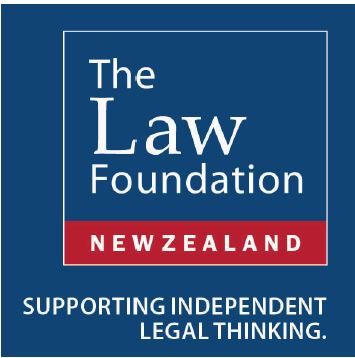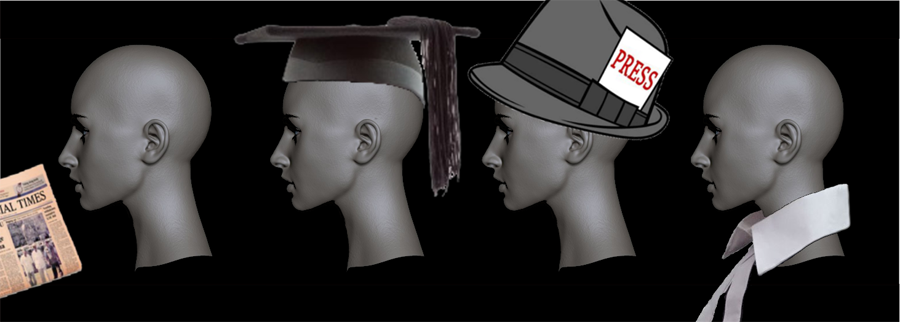

Home
Oxford Venue
Oxford Programme
Oxford Participants
Dunedin Venue
Dunedin Programme
Dunedin Participants
Roundtable on Artificial Intelligence and Employment
Oxford
November 26-27, 2018
Dunedin
September 26-27, 2019



Dunedin Roundtable
INTRODUCTION
What effects will advances in Artificial Intelligence (AI) have on employment in New Zealand? This question looms large in local media discussions about AI, and increasingly preoccupies New Zealanders preparing to enter the workforce.
Public debate focuses on the likely effects of AI on human workers. AI systems threaten to eliminate some jobs altogether, and to dramatically alter the nature of other jobs, as parts of existing jobs are automated. However, as AI systems enter the workplace, AI may also have larger-scale effects on whole professions, and the function they perform in society, as well as on individual workers. To examine these effects, this workshop will examine employment related issues alongside case studies of several professions. We will hear from practicing employment lawyers, academic AI and law researchers, policy experts and trade unionists. We will also hear from people working in the New Zealand AI industry, and from representatives of professions that are being disrupted by AI.
We will focus on two ‘Professions’ with a capital P - medicine and law - and two professions with a more casual, mobile workforce - gig economy workers and personal assistants. We are equally interested in the effects of AI on human workers in these professions, and its effects on the professions themselves. Our focus in this roundtable is on what changes to New Zealand employment policy and regulation (if any) might be needed to respond to both types of effects.
FORMAT
This is a two-day closed workshop. Day 1 speakers will focus on the likely impact of AI on core concepts of employment law and labour issues that cut across professions. We will discuss questions such as the following:
- How are AI methods impacting on the process of hiring or selecting employees? How can we ensure these processes remain fair and accountable?
- How might AI related job losses fit within existing categories of redeployment, redundancy and unfair dismissal? Are employment law changes needed to cater for these scenarios?
- In the ‘gig economy’, the traditional role of a company manager is partly played by an algorithm - increasingly, one that makes some use of AI techniques. How does this revised model of management affect the workers in the company, individually and collectively? Is there any need to change existing legal categories of ‘employee’ and ‘independent contractor’?
- Might new legal mechanisms for defining corporate rights and obligations be needed? Should AI systems be regarded as 'legal persons' for some purposes?
Day 2 will bring the themes from Day 1 to test against case studies in three professions: medicine, law and personal assistance work. We will also discuss some general questions that range across all professions:
- How are different professions responding to AI? In what ways are professions taking up AI tools? How do these areas of uptake relate to the responsibilities of professionals?
- How are AI tools affecting humans that work alongside them?
- How is the sharing of work between AI systems and human workers managed? Are there any general principles that could be adopted, or mandated?
- If human employees are replaced by AI systems, will the social dimension of professions be eroded - for instance, the ‘pastoral’ role of medical and legal professionals, or the interpersonal connections between casual workers and clients? If so, how (if at all) should this dimension be safeguarded?
Project Authors:
Professor James Maclaurin, Associate Professors Colin Gavaghan and Alistair Knott and Ms Joy Liddicoat.
Contact email: Joy.Liddicoat@otago.ac.nz
Oxford Roundtable
What effects will advances in Artificial Intelligence (AI)
have on employment? This question looms large in discussions about
AI. The public debate focusses on likely effects of AI on human
workers: AI systems threaten to eliminate some jobs
altogether, and to dramatically alter the nature of other jobs, as parts of existing jobs are automated. However, as AI
systems enter the workplace, AI may also have larger-scale effects
on whole professions, and the function they perform in society, as
well as on individual workers. To examine these effects, it is
useful to see case studies of several professions side by side.
In this roundtable, we will hear from experts in several professions
that are in the process of being disrupted by AI. Our focus is,
loosely speaking, on ‘Professions’ (with a capital P), such as Law,
Journalism, Education and Management, whose practice is instrumental
in regulating and organising our society. We are equally interested
in the effects of AI on human workers in these professions, and its
effects on the professions themselves. Our focus in the roundtable
is on what changes to policy and regulation (if any) might be needed
to respond to both types of effects. AI technologies pose
fascinating legal, practical and ethical challenges, which require
interdisciplinary solutions.
OBJECTIVE
The roundtable seeks to identify trends and issues in AI and
employment and to understand emerging responses, including what, if
any, policy or regulatory responses may be needed. To achieve this
objective, participants will be invited from academic institutions,
industry, civil society, professional bodies and the technical
community to discuss the likely impacts of AI on professions and
implications for employment law.
For example, impacts may include technological unemployment (the
prospect that people will lose their jobs to intelligent machines),
human and AI job sharing, and new forms of employment. These raise
many legal questions, such as:
- Will replacing human employees with AI erode the social dimension of professions such as law, journalism and education? If so, should this dimension be safeguarded?
- Might new legal mechanisms for defining corporate rights and obligations be needed? Should AI systems be regarded as 'legal persons' for some purposes?
- How would AI technology related job losses fit within existing categories of redundancy and unfair dismissal? Are employment law changes needed to cater for this scenario?
This is a two-day closed workshop. Day 1 speakers will focus on the likely impact of AI on the professions including law, medicine, education, journalism, law enforcement and company management. Day 2 speakers will focus on issues that cut across professions, for example, recruitment, redundancy, human oversight of AI, transparency and liability for AI decision-making. Participants will be encouraged to share research and pose questions.
Project Authors:
Professor James MacLaurin, Associate Professors Colin Gavaghan and Alistair Knott, Dr John Zerilli and Joy Liddicoat.
Contact email: Joy.Liddicoat@otago.ac.nz